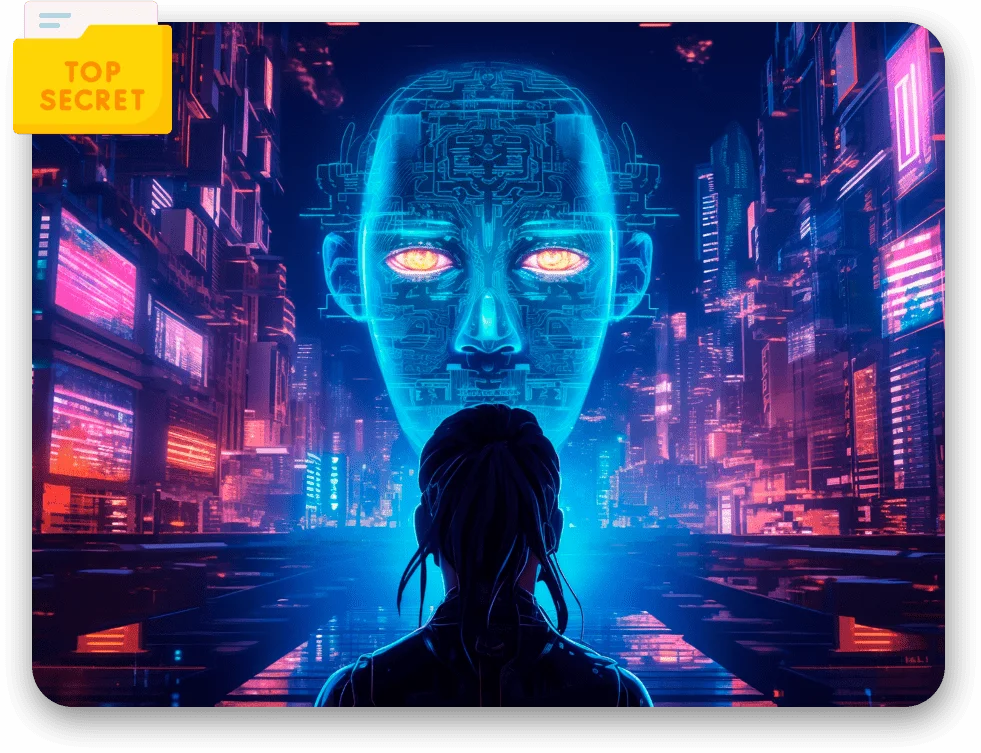The world of search engine optimization (SEO) has long been built around a central pillar: search engines. Specifically, Google has been the driving force behind how businesses, marketers, and webmasters optimize their content for discovery. But what happens if search engines, as we know them today, are replaced by AI-driven conversational models like ChatGPT? Could SEO survive in a world where AI dominates information retrieval?

This blog will explore the future of SEO if AI assistants replace traditional search engines, and what that would mean for businesses, content creators, and marketers.
Want to future-proof your SEO strategy? Learn how AI is transforming search!
The Current State of SEO and Search Engines
SEO’s Core Principles
Search engine optimization has long revolved around creating content that ranks highly on search engine result pages (SERPs). This includes optimizing for:
- Keywords: Ensuring the right phrases are used.
- Backlinks: Building authority through reputable inbound links.
- User Experience: Fast loading times, mobile-friendly interfaces, and easy-to-navigate content.
- Content Quality: Providing relevant and engaging information that matches user queries.
These practices align with the mechanics of search engine algorithms like Google’s. Google, through its massive data aggregation and indexing capabilities, attempts to provide the most relevant and authoritative results for any given search.
The Rise of AI in Search
Over the past few years, search engines have been steadily incorporating AI-driven systems to improve their performance. Google’s algorithms like RankBrain and BERT, as well as voice search assistants like Siri, Alexa, and Google Assistant, have gradually introduced more natural language processing into the search experience.
However, these systems still work within the framework of a search engine: they retrieve and display information from indexed websites. SEO strategies have adapted to these changes, focusing more on long-tail keywords, semantic search, and voice search optimization. But what happens when AI goes beyond its role as a search facilitator and becomes the primary way users access information?
Don’t let AI leave your business behind—discover AI-first SEO strategies today!
A World Without Search Engines: ChatGPT as the Primary Information Portal
Imagine a world where ChatGPT, or similar AI systems, serve as the main entry points for retrieving information. In this future, instead of typing a query into Google and browsing through several pages of results, users would interact directly with an AI that delivers conversational, contextualized responses. This fundamentally changes how we interact with information and, consequently, how SEO works.
The Death of the SERP
The traditional search engine result page (SERP) would no longer exist in this scenario. In a ChatGPT-dominated world, there is no first page of Google, no organic results competing for visibility. Instead, a user asks a question, and the AI provides an answer, potentially citing sources without needing to display a list of clickable links.
This raises the immediate question: how do businesses ensure visibility in an environment where users never browse multiple options? How would marketers adapt when they can no longer focus on optimizing for a first-page ranking?
The New SEO: Optimizing for AI Responses
Without traditional search engines, SEO wouldn’t disappear—it would evolve. Below are some ways the future of SEO might look in a world driven by AI assistants like ChatGPT.
1. Content Authority and AI Preferences
AI systems rely heavily on authoritative data sources to generate their responses. In a world without SERPs, the focus for businesses would shift from ranking algorithms to becoming preferred sources of information for AI.
- Structured Data: AI thrives on structured, easily parsable information. Websites would need to ensure their data is formatted in a way that is digestible for AI models, including extensive use of semantic markup like schema.org.
- Reputation Building: AI systems will prioritize trustworthy, authoritative content. The emphasis on E-A-T (Expertise, Authority, and Trustworthiness) will grow even stronger. Businesses will need to double down on developing recognized authority in their fields through high-quality content and robust digital presence.
- Source Partnerships: Establishing relationships with platforms that AI assistants pull from could become a priority. For instance, businesses may try to ensure their content is favored by AI by partnering with key information aggregators like Wikipedia, Google Scholar, or government databases.
2. Natural Language and Conversational SEO
AI assistants excel at natural language processing, and SEO in the future would need to reflect this. Instead of targeting keywords specifically designed to rank in search engines, content creators would focus on conversational queries and long-form question-answer formats.
- Optimizing for Conversational Queries: Businesses would need to understand the kinds of natural language queries users ask and ensure their content is framed in a way that AI can pull from it. This would involve shifting from keyword-stuffed pages to more nuanced content that reflects actual questions users might ask.
- Answering Multiple Queries: AI systems often deliver aggregated responses to complex questions. Future SEO strategies might focus on creating content that provides in-depth, multi-faceted answers that cover different angles of a query, increasing the likelihood of being cited by AI.
3. Proactive Content Feeds
In a future where ChatGPT replaces traditional search, users might not even need to ask questions explicitly. Instead, AI assistants could push relevant information to users based on predictive algorithms and context. This would lead to the rise of push SEO, where businesses optimize for proactive AI-driven content distribution.
- Personalized Feeds: AI will likely deliver content based on user preferences, browsing history, and predictive needs. Businesses would need to understand how to ensure their content is flagged as relevant for these feeds, potentially creating more personalized, niche-targeted content.
- Timely and Topical Content: Being quick to produce content on trending or breaking topics might become even more critical in ensuring that AI-driven content delivery systems prioritize your site.
Stay ahead in the digital race—See how AI will change SEO forever!
4. Multimodal SEO: Optimizing for Text, Voice, and Visual AI
ChatGPT and similar systems are evolving beyond just text. They can analyze images, generate videos, and understand voice inputs, which means future SEO will need to be multimodal, optimizing for multiple types of input and output formats.
- Voice Optimization: Voice search has been growing, and in a world dominated by conversational AI, voice optimization will take center stage. Businesses will need to consider how their content sounds when read aloud by AI systems and ensure that it’s optimized for voice responses.
- Visual Content Optimization: AI systems like DALL-E and MidJourney, which create images, could become essential tools for content creation. As AI assistants expand into visual and video content generation, businesses would need to develop strategies to optimize for these formats, such as creating AI-friendly images and infographics.
- Interactive Content: Future AI might not just provide static answers but interactive experiences, such as dynamically generated multimedia content. Brands would need to consider how they can integrate interactive elements that AI systems can reference or enhance.
New Challenges for Businesses and Marketers
The future of SEO in a ChatGPT-driven world would introduce a set of new challenges for marketers, content creators, and businesses alike.
1. Loss of Direct Website Traffic
Without search engines, businesses would likely experience a drop in direct website traffic. If an AI assistant provides answers to user queries without directing them to the source, brands could lose out on website visits, reducing ad revenue, lead generation, and conversion opportunities.
2. The Battle for Data Control
AI models like ChatGPT rely on vast amounts of data to generate responses, and businesses may have limited control over how their content is used or presented. This lack of control could lead to information being cited or repurposed in ways that don’t align with a brand’s messaging or goals.
3. Monetization Dilemmas
SEO often serves as a key driver of free organic traffic, but if AI assistants become gatekeepers of information, businesses may need to pay to play. AI-driven services might start charging for visibility, similar to how businesses pay for Google Ads or Facebook Ads today.
- Paying for Inclusion in AI Responses: Companies might need to subscribe to premium services or platforms to ensure their content is included in AI-generated responses.
- Sponsored AI Results: Sponsored content could become an avenue for businesses to get their message delivered through AI, in much the same way as sponsored ads work on traditional search engines.
4. Greater Emphasis on Content Licensing
In a world dominated by AI-generated responses, content licensing could play a larger role in SEO. Companies may need to negotiate agreements with AI platforms to ensure that their content is properly attributed and that they receive fair compensation for its use.
Want to learn how AI assistants are changing SEO? Click here for essential insights!
Opportunities in the AI-Driven Future of SEO
While the shift away from traditional search engines would create significant challenges, it would also open up new opportunities.
1. Enhanced Personalization
AI systems excel at tailoring information to individual users, based on their preferences and behaviors. For businesses, this offers an opportunity to create more personalized content experiences that speak directly to their target audiences.
- Tailored AI Responses: Companies that succeed in providing the most relevant and personalized answers could become favored sources for AI assistants, ensuring long-term visibility in a crowded content landscape.
2. Smarter Content Creation
AI tools like ChatGPT aren’t just search engines—they’re content creators. Businesses can leverage these tools to produce better, more optimized content, using AI to analyze trends, suggest improvements, and generate personalized responses to user queries.
- AI-Assisted SEO: AI tools can assist businesses in identifying emerging trends, optimizing content for AI interaction, and even generating entire pieces of content tailored to what AI systems prefer to surface.
3. AI-First Marketing Strategies
As AI becomes a dominant force in information retrieval, businesses will need to shift their marketing strategies toward AI-first approaches. This means:
- Creating AI-Friendly Content: Structuring content in ways that AI models can easily parse and integrate into their responses.
- Building AI Partnerships: Working directly with AI platforms to ensure visibility, relevance, and accuracy in the information provided.
4. New Data Analytics
With traditional web analytics potentially becoming less useful in a world where users get their information through AI, businesses will need to develop new metrics for success. AI-driven insights, predictive analytics, and conversational analytics will play a larger role in understanding user behavior and optimizing content accordingly.
Ready to evolve with AI? Learn the secrets to mastering SEO in an AI world!
Conclusion: The Future of SEO is Still Bright—But Different
While the rise of AI-driven assistants like ChatGPT could dramatically alter the landscape of search and SEO, the future of optimization is far from bleak. Businesses and marketers will need to adapt to a new paradigm—one where AI systems, not search engines, are the gatekeepers of information. This shift will require a greater emphasis on creating authoritative, AI-friendly content, developing partnerships with AI platforms, and navigating new monetization strategies.
The disappearance of traditional search engines might mark the end of SEO as we know it, but the core principles of visibility, relevance, and user experience will remain essential. In this new era, the brands that thrive will be those that successfully pivot to AI-first optimization strategies, making the most of the tools and opportunities presented by this transformative technology.



Leave a Reply